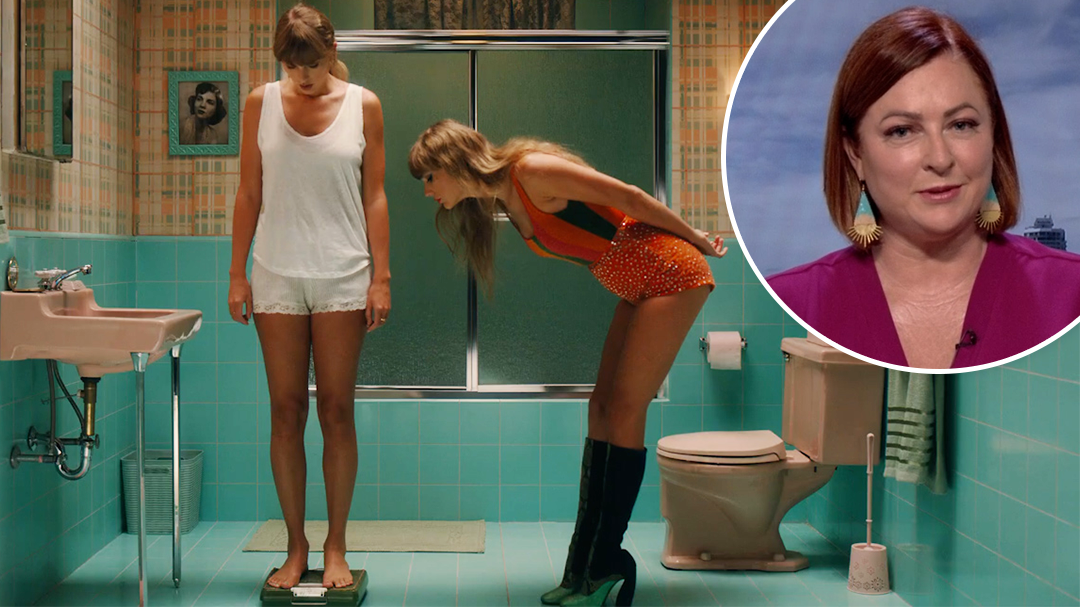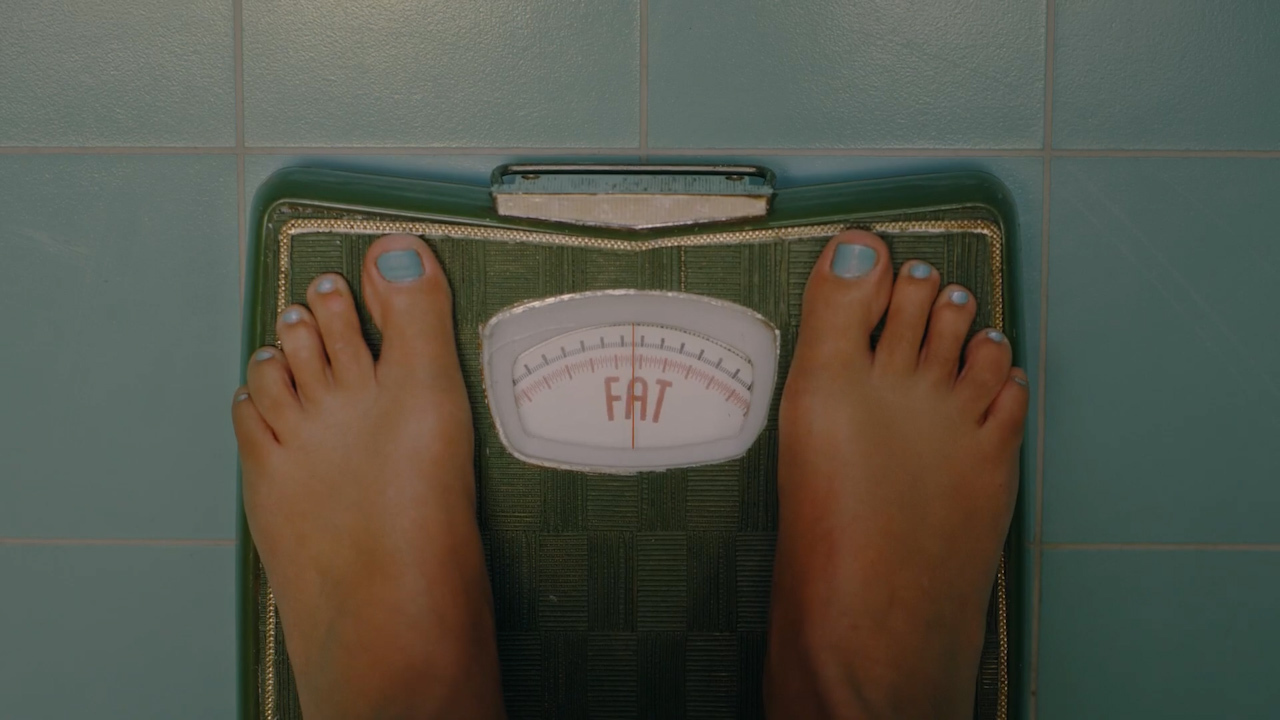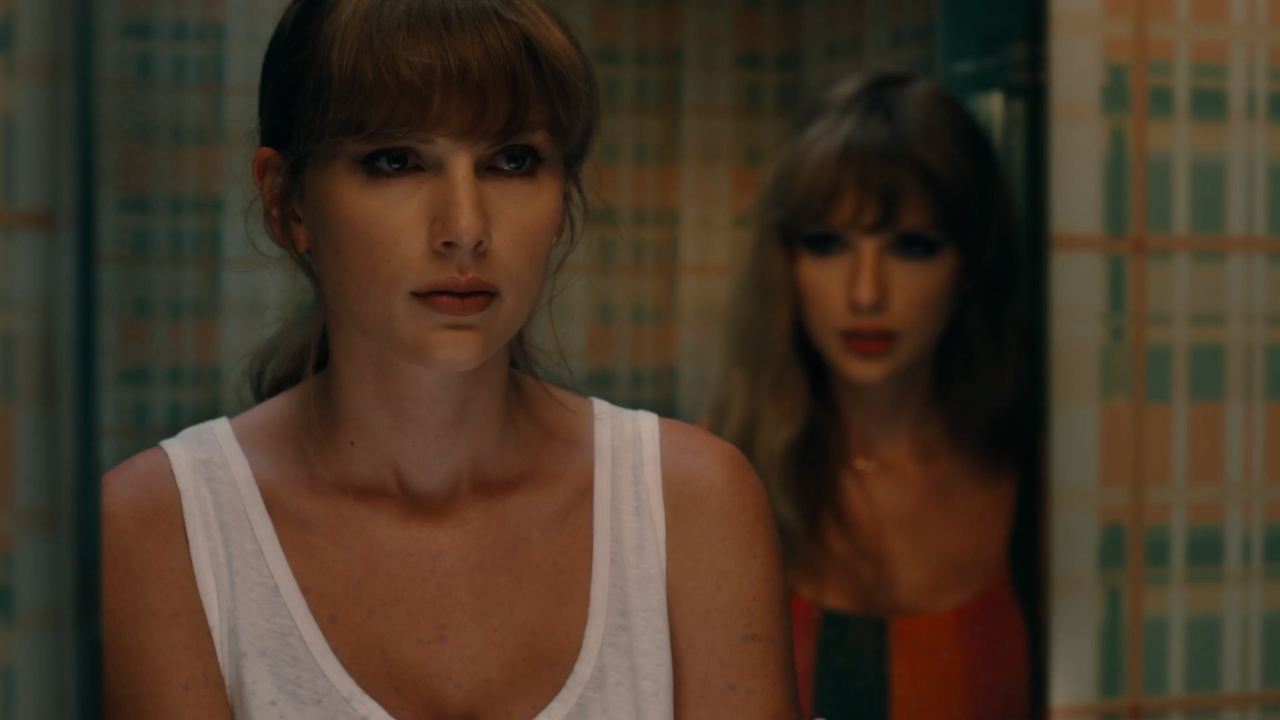Taylor Swift has removed a scene from her Anti-Hero music video after several fans, activists and health professionals called it “fatphobic.”
The eight-second-long scene shows Swift in a bathroom, stepping on a scale that moves to have the label “fat” on it rather than displaying a numerical figure. As she looks down at the scale, Swift sings, “I stare directly at the sun but never in the mirror”, before a second version of herself shaking her head no is shown in the shot.
Per Variety, the 32-year-old songstress has removed the scale scene from the music video on Apple Music, however, it still remains embedded within the YouTube version.
Watch the video above.
READ MORE: Popular DJ found dead in Spanish villa
When Swift released her tenth studio album Midnights last week, she tweeted that she wrote and directed the song Anti-Hero‘s music video, and described it as a visual representation of her “nightmare scenarios and intrusive thoughts.”
Health professionals and critics, however, slammed the scene as damaging, with social worker Shira Rosenbluth, who specialises in eating disorder treatment, tweeting: “Taylor Swift’s music video, where she looks down at the scale where it says ‘fat,’ is a s–tty way to describe her body image struggles. Fat people don’t need to have it reiterated yet again that it’s everyone’s worst nightmare to look like us.”
“Having an eating disorder doesn’t excuse fatphobia. It’s not hard to say, ‘I’m struggling with my body image today’ instead of I’m a fat, disgusting pig,” she added.
READ MORE: Pregnant star reacts after told she’s ‘too young’ to have baby
https://twitter.com/taylorswift13/status/1583429735480451072https://twitter.com/theshirarose/status/1583500955818942470
Swift has been open in the past about struggling with an eating disorder, and one Twitter user reasoned: “I saw someone say that she could’ve put ‘not thin enough’ and I think that would’ve been more in line with what she was trying to get across anyways on top of not being offensive.”
“Lmfao the comment section does not pass the vibe check. It’s understandable that people have ED [eating disorders] and see their bodies as ugly, but Fat isn’t a feeling fat is a state of being. When people who have ED say ‘ew gross I feel so fat, I’m ugly’ of course feelings about their bodies are real,” a third Twitter user wrote.
“but it’s still enforcing the idea tht fat is gross/bad. Her feelings can be valid, while still promoting fatphobia. This isn’t a competition. ED & Fatphobia are both real, but just because someone has ED doesn’t mean that they should promote the idea that fat is gross.”
Many people reiterated the criticisms online, though some Swift fans jumped to the Grammy-winning artist’s defense.
READ MORE: Dame Judi Dench reveals health struggle

For a daily dose of 9Honey, subscribe to our newsletter here.
One fan wrote: “If she feels/felt fat, she is sharing her story. When I am above the weight I want (often), I feel fat. Someone saying, ‘you’re not fat’ doesn’t make me feel not fat. I don’t get why someone feeling fat (no matter how unhealthy the thought) is wrong?”
“having insecurities is no longer allowed bc it might make a fat person somewhere upset,” another fan tweeted.
In 2020, Swift opened up about struggling with an eating disorder in the past, saying in her documentary Taylor Swift: Miss Americana: ”It’s only happened a few times, and I’m not in any way proud of it. A picture of me where I feel like I looked like my tummy was too big, or … someone said that I looked pregnant … and that’ll just trigger me to just starve a little bit – just stop eating.”
Swift has not publicly addressed cutting the scene from the Apple Music version of the music video.
People living with eating disorders or disordered eating, or who are concerned about themselves, or their loved ones are encouraged to contact the Butterfly Foundation Helpline on 1800 ED HOPE (1800 33 4673).










